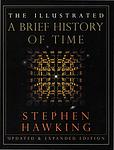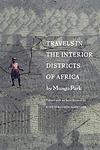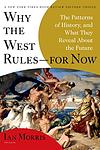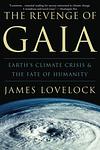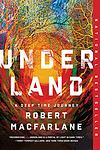The Greatest British "Physical Sciences" Books of All Time
Click to learn how this list is calculated.
This list represents a comprehensive and trusted collection of the greatest books. Developed through a specialized algorithm, it brings together 300 'best of' book lists to form a definitive guide to the world's most acclaimed books. For those interested in how these books are chosen, additional details can be found on the rankings page.
Genres
The "Physical Sciences" category encompasses a broad range of books that delve into the non-living systems of the natural world, offering insights into the fundamental principles and phenomena that govern the universe. This category includes disciplines such as physics, chemistry, astronomy, geology, and meteorology, among others. Books within this genre may cover topics from the subatomic particles and forces that constitute the fabric of space-time to the vast cosmic structures of galaxies and the universe at large. They can also explore the chemical reactions that underpin the behavior of matter, the geological processes that shape our planet, and the atmospheric dynamics that influence our weather and climate. Whether aimed at students, professionals, or enthusiasts, these books serve as a gateway to understanding the laws of nature and the scientific methodologies used to uncover them, often combining theoretical concepts with practical applications and the latest research findings.
Countries
Date Range
Reading Statistics
Click the button below to see how many of these books you've read!
Download
If you're interested in downloading this list as a CSV file for use in a spreadsheet application, you can easily do so by clicking the button below. Please note that to ensure a manageable file size and faster download, the CSV will include details for only the first 500 books.
Download-
1. A Brief History of Time by Stephen Hawking
A Brief History of Time is a popular science book that explores a broad range of topics in cosmology, including the Big Bang, black holes, light cones and superstring theory. The author does not shy away from complex theories and concepts, but explains them in a way that is accessible to non-scientific readers. The book also discusses the possibility of time travel and the boundaries of scientific knowledge. Throughout, the author emphasizes the ongoing quest for a unifying theory that can combine quantum mechanics and general relativity into one all-encompassing, coherent theoretical framework.
-
2. Travels in the Interior Districts of Africa by Mungo Park
"Travels in the Interior Districts of Africa" is a detailed account of the author's exploration into the heart of Africa at the end of the 18th century. The narrative provides an in-depth look at the geography, flora, fauna, and local cultures of the region at the time. The author, a Scottish explorer, recounts his journey along the Niger River, his encounters with different African tribes, his experiences of being captured and enslaved, and his eventual escape. The book offers a unique perspective on African society and the European perception of Africa during this period.
-
3. Dart by Alice Oswald
"Dart" is a narrative poem that traces the journey of the River Dart in Devon, England, from its source to the sea. The poem is a vivid exploration of the river's natural and human environments, and the voices of the people who live and work along its banks. It is a celebration of the river's vitality and diversity, and a meditation on the complex interplay between nature and human activity.
-
4. Why the West Rules - For Now: The Patterns of History, and What They Reveal About the Future by Ian Morris
This book is a comprehensive exploration of the historical and cultural patterns that have led to Western dominance in the world. The author uses a broad range of evidence from archaeology, genetics, and linguistics to trace the development of East and West from prehistoric times to the present, arguing that physical geography, rather than culture, religion, or great men, is the primary driving force behind the rise of the West. The book also offers a forecast for the future, predicting a shift in global power from the West to the East.
-
5. The Expanding Universe by Arthur Eddington
"The Expanding Universe" is a scientific exploration of the concept of an ever-growing universe. The author delves into the theories and evidence that support this idea, including the redshift of light from distant galaxies and the implications of Einstein's theory of general relativity. The book also discusses the philosophical and theological implications of a universe that had a beginning and will have an end, making it a fascinating read for both scientists and general readers interested in cosmology.
-
6. Gipsy Moth Circles the World by Francis Chichester
This book chronicles the author's solo sailing journey around the globe in his yacht, the Gipsy Moth IV. Battling harsh weather conditions, loneliness, and equipment failure, he successfully circumnavigates the world, starting and ending in England, and becoming the first person to do so by the clipper route, and the fastest circumnavigator, in nine months and one day overall. The book details his adventure and the challenges he faced, providing an intimate look at the world of sailing and exploration.
-
7. Earth: An Intimate History by Richard Fortey
This book provides a comprehensive understanding of the Earth's geological history. The author explores how the planet's diverse landscapes were formed over billions of years, examining various regions around the world from Hawaii to the Alps. The narrative intertwines scientific theories with engaging storytelling, making complex geological concepts accessible to a general audience. The book also emphasizes the impact of geological forces on human history and culture.
-
8. The Revenge of Gaia by James Lovelock
The book presents a compelling argument about the Earth's self-regulating system, Gaia theory, and the severe impact of climate change on it. The author warns that if humans continue to harm the environment, Gaia will take revenge, leading to a much hotter and less hospitable planet. He proposes solutions to mitigate the damage, such as nuclear power and sustainable technology, emphasizing the urgency to act before it's too late.
-
9. Underland by Robert Macfarlane
"Underland" is a deep exploration into the world beneath our feet, taking readers on a journey into the Earth's underworlds. The book delves into the hidden landscapes of the subterranean, from the catacombs of Paris, the underground fungal networks in forests, to the deep sea caves and glacial crevasses. It beautifully combines natural history, mythology, and environmental science, while exploring themes of human impact on the planet, our relationship with darkness, and the concept of deep time.
-
10. 2010: Odyssey Two by Arthur C. Clarke
"2010: Odyssey Two" by Arthur C. Clarke is a science fiction novel that follows a joint Soviet-American mission to investigate the mysterious events surrounding the spaceship Discovery One, which disappeared nine years earlier on its mission to Jupiter. As the crew embarks on their journey, they encounter strange occurrences and discover a hidden alien presence on Jupiter's moon, Europa. With tensions rising and the fate of humanity at stake, they must uncover the truth behind the monoliths and face the unimaginable consequences of their discoveries.
Reading Statistics
Click the button below to see how many of these books you've read!
Download
If you're interested in downloading this list as a CSV file for use in a spreadsheet application, you can easily do so by clicking the button below. Please note that to ensure a manageable file size and faster download, the CSV will include details for only the first 500 books.
Download